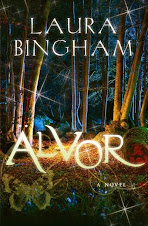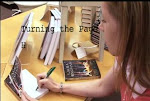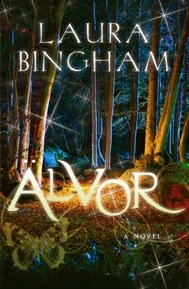I'm going to the Idaho Writer's League next month and doing a presentation for them. The topic they gave me:
Focus on how you found your agent and/or publisher, what you submitted to get them to take a look at your manuscript and how the editing process went.
I'll come up with something, but most of it will be from things I've learned at writers conferences and books. My own experience probably isn't worth that much.
- Never found an agent. At the time, I didn't even try to. Now that I'm looking for one, I'm still not finding one. Or, rather, they're not finding me the perfect author.
- I found my publisher originally by looking at the back of books. Since I figured a small press was my best bet for a unknown author, I found them online and sent in my manuscript.
- What I submitted to get them to take a look at my manuscript... I sent them exactly what they asked for. That's it. Probably had a query letter and a brief synopsis to go along with the manuscript.
- The editing process. I think I did most of the editing before my publisher received the final manuscript. Fortunately, I had some time between my original submission and the final submission to polish my work. The actual editing done through my publisher was minimal and included no revisions. I'm probably not qualified to teach a class on how to work with an editor. I never did. A week before my book went to press they sent me a proof to look at. I read it in one evening and sent it back. For all you grammar gifted people, I hear there are two places that are grammatically wrong. Find them, and let me know where. The first person who told me couldn't remember.
But it's all the stuff that almost happened that makes my process more interesting. Or frustrating, depending on how you look at it.
I was waiting on a response from two New York publishing houses- big ones- when I received my contract. Ouch.
Long story short, I went with the small house. Here are some good reasons to go small, in case anyone out there is facing the same issue.
1. You'll get your book published a lot faster.
2. You can't sell a book that you don't have.
3. In the end, you can make just as much money on a small press as a big one, especially if you are a new/unkown author. It's math. Instead of an advance against your royalties, you get royalties on actual sales. In the end, you might not get money up front, but you can still make the money. It's more spread out, but the more books you sell, the more you make. See reason #2.
4. No pressure. I mean, the opposite of pressure. There is absolutely no deadlines for me to meet, no expectations of my marketing abilities or future work. The only pressure I have is the pressure to excell that I create. If I want to make something happen, it's up to me.
5. Just because you were published with a big house does NOT mean you will sell more books. In fact, depending on how things pan out, you might sell less. Big houses promote the books they think will be winners. The smaller titles get less marketing time. Sometimes authors from big houses do almost nothing on their own to promote their own book, it's not the author's job, right?
6. An author from a small press is forced to learn the business. If I want to get my book out there, I have to do a lot of work. Not that my publisher isn't working, too. If it weren't for them, I wouldn't have a chance. But I have to understand how the system works. Ingram Distributers is a big one. Getting out in the real world and meeting people, especially bookstore owners and managers is another.
7. It's going to be easier to publish a second book now that my first is a reality. That's the plain and simple of it. At the end of the day, no matter how much I still have to do, at least I know I'm at the beginning of my career as a writer instead of the end.
And for the record, my goals include finding an agent and publishing at a big house. I just don't think sitting on my hands is going to get me there faster. Going small turned out to be a big step in the right direction.
Dear Debbie by Freida McFadden
1 day ago



















3 comments:
This is GREAT information, Laura. I also think that it says a lot about your incredible work ethic. I'm proud of you for sticking to your guns and doing so much hard work. To me, it proves that not only are you a serious writer, but that you're willing to do what it takes to make your dream a reality. Not everyone can say that. You live it. Way to go!
So interesting! I've wondered how on earth a mother of 5 young, busy kids has managed this-- now I know, Hard Work! Good for you. I've been thinking about how you make an interesting presentation in a school.... I'd love to be there for one!
I have a list of ideas, or subjects for my school presentation, but I'm always looking for more ideas. I would especially like quirky fun things that will stay in the minds of kids.
Thanks for your words of encouragement. I need all the help I can get!
Post a Comment